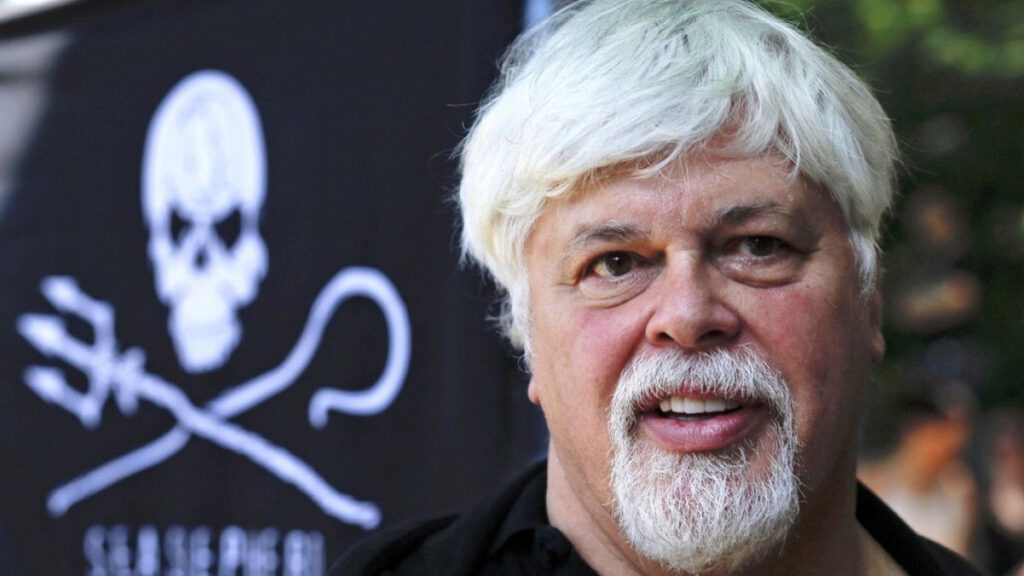Paul Watson, the 74-year-old founder of the Sea Shepherd Conservation Society, a prominent anti-whaling organization, has been released from Greenlandic custody after being arrested in July on a Japanese extradition warrant. The warrant stemmed from a 2010 incident in which Watson allegedly ordered the captain of his vessel to throw explosives at a Japanese whaling research ship, accusing him of obstructing the crew’s official duties. Denmark, which holds sovereignty over Greenland, ultimately rejected Japan’s extradition request, citing inadequate assurances regarding the recognition of Watson’s time served in Greenland towards any potential sentence he might face in Japan. This decision averts a potential 15-year prison sentence for Watson in Japan, a prospect that deeply concerned him and his family, particularly his two young sons whom he had not seen since June. Watson’s release marks a victory for anti-whaling activism and raises questions about the implications of this case on the ongoing debate surrounding Japan’s whaling practices.
Watson’s release brings to a close a period of uncertainty and anxiety for the activist, his family, and his supporters. The five-month detention in Greenland weighed heavily on Watson, particularly the separation from his children. The decision to reject the extradition request also represents a significant win for anti-whaling proponents who viewed the Japanese warrant as a politically motivated attempt to stifle dissent against Japan’s whaling program. Watson, who had found refuge in France with his family in 2023, has enjoyed considerable public support, including from French President Emmanuel Macron. This support, coupled with the legal arguments presented by his defense team, likely played a role in the Danish authorities’ decision to refuse extradition. The incident highlights the complexities of international law and the challenges faced by activists working across borders.
The core issue at the heart of this case revolves around the clash between Japan’s whaling practices and the international movement to protect whales. Japan maintains that its whaling activities are conducted for scientific research and are sustainable. However, anti-whaling activists, including Watson and the Sea Shepherd Conservation Society, argue that these claims are a façade for commercial whaling and pose a threat to whale populations. The 2010 incident that led to the Japanese arrest warrant exemplifies the long-standing tension between the two sides. Watson’s direct action tactics, which have often involved confrontations with whaling vessels, have made him a controversial figure. His methods, while effective in drawing attention to the issue, have also led to legal battles and accusations of eco-terrorism.
The Sea Shepherd Conservation Society, founded by Watson after a dispute with Greenpeace over tactics, has been at the forefront of the fight against whaling and the protection of marine life. The organization’s aggressive approach, involving direct interventions on the high seas, has garnered both praise and criticism. Sea Shepherd’s campaigns have attracted celebrity endorsements and been documented in the popular television series “Whale Wars,” raising public awareness about the plight of whales and other marine animals. However, the organization’s tactics have also led to legal challenges and accusations of vigilantism. Despite these controversies, Sea Shepherd remains a prominent voice in the international conservation movement.
The Japanese government’s pursuit of Watson through international legal channels reflects its commitment to defending its whaling program. Japan’s withdrawal from the International Whaling Commission in 2019 and the subsequent resumption of commercial whaling within its exclusive economic zone underscored its determination to continue this practice despite international pressure. The arrest warrant against Watson can be interpreted as part of a broader strategy to discourage and silence critics of its whaling policy. The Danish decision to reject extradition, however, represents a setback for Japan’s efforts to assert its authority in this matter.
The case of Paul Watson underscores the ongoing, complex, and often contentious debate surrounding whaling. It highlights the passionate commitment of activists like Watson who are willing to risk imprisonment to protect whales and other marine life. It also sheds light on the legal and political maneuverings that underlie this international dispute. While Watson’s release represents a victory for anti-whaling campaigners, the underlying conflict over the future of whaling remains unresolved. The case serves as a reminder of the urgent need for international cooperation and dialogue to address this critical environmental issue and find sustainable solutions that protect both marine ecosystems and the interests of various stakeholders.














